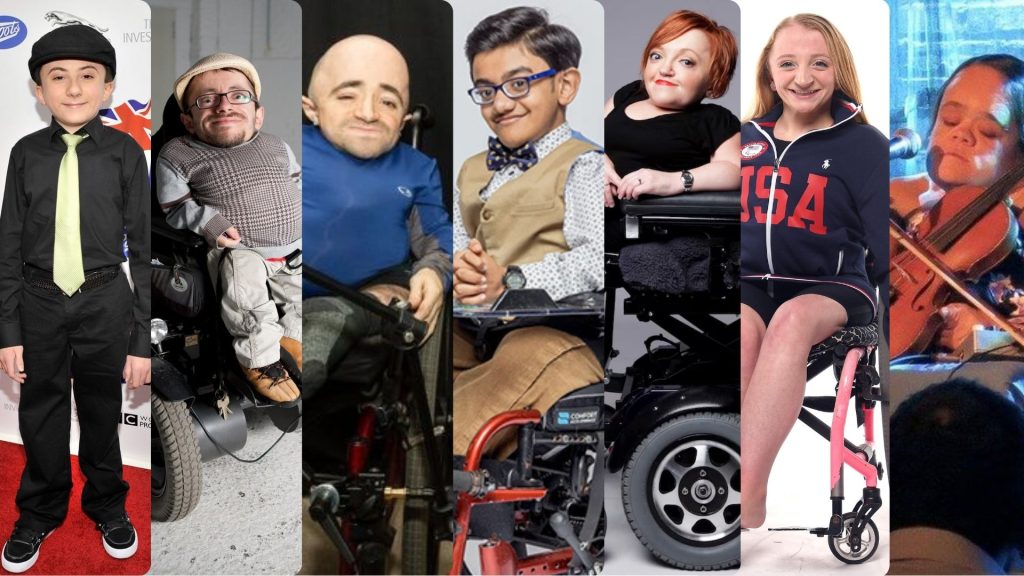
“Osteogenesis Imperfecta (OI) is a genetic condition present from birth. Its primary feature is fractures usually caused by minimal impact. This information sheet from Great Ormond Street Hospital (GOSH) describes osteogenesis imperfecta (OI), what causes it and how it can be managed. It also tells you about the highly specialized service for OI based at GOSH.
Osteogenesis Imperfecta (OI) is a defect where collagen (the protein that is responsible for bone structure) is missing, reduced or of low quality, so is not enough to support the minerals in the bone. This makes the bone weak, which in turn makes the bones easy to fracture.” [1]
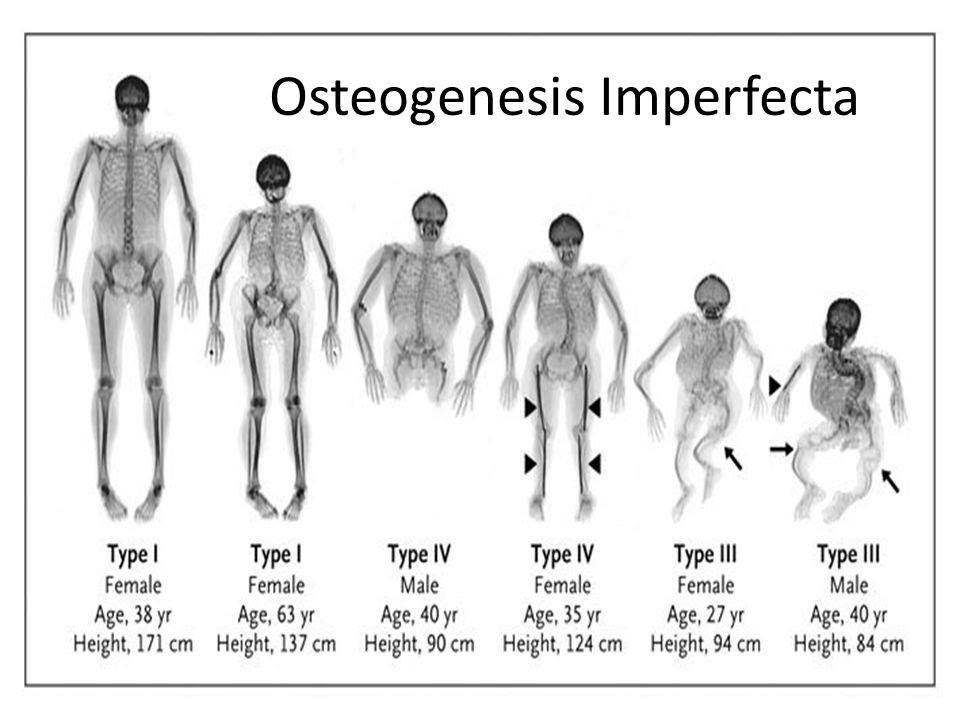
What are the types of osteogeneses imperfecta?
“Experts categorize OI into 19 types. Healthcare providers classify osteogenesis imperfecta as Type I through Type XIX.
The first four osteogenesis imperfecta types are the most common. These include:
Type I: This is the mildest and most common form of OI. Type I leads to broken bones (bone fractures) or muscle weakness. It doesn’t cause any bone deformity.
Type II: Babies born with Type II often can’t breathe and die young. Type II causes multiple broken bones even before the baby is born.
Type III: Babies often have broken bones at birth. Type III often leads to severe physical disabilities.
Type IV: Bones may break easily. Usually, children with this type have their first bone break before puberty. People with Type IV may have mild to moderate bone deformity. [2]
Who might get brittle bone disease?
Anyone can be born with brittle bone disease. However, you are more likely to have OI if you have a family history of the disease.
Osteogenesis imperfecta is rare. It affects around 1 in every 20,000 people.” [2]
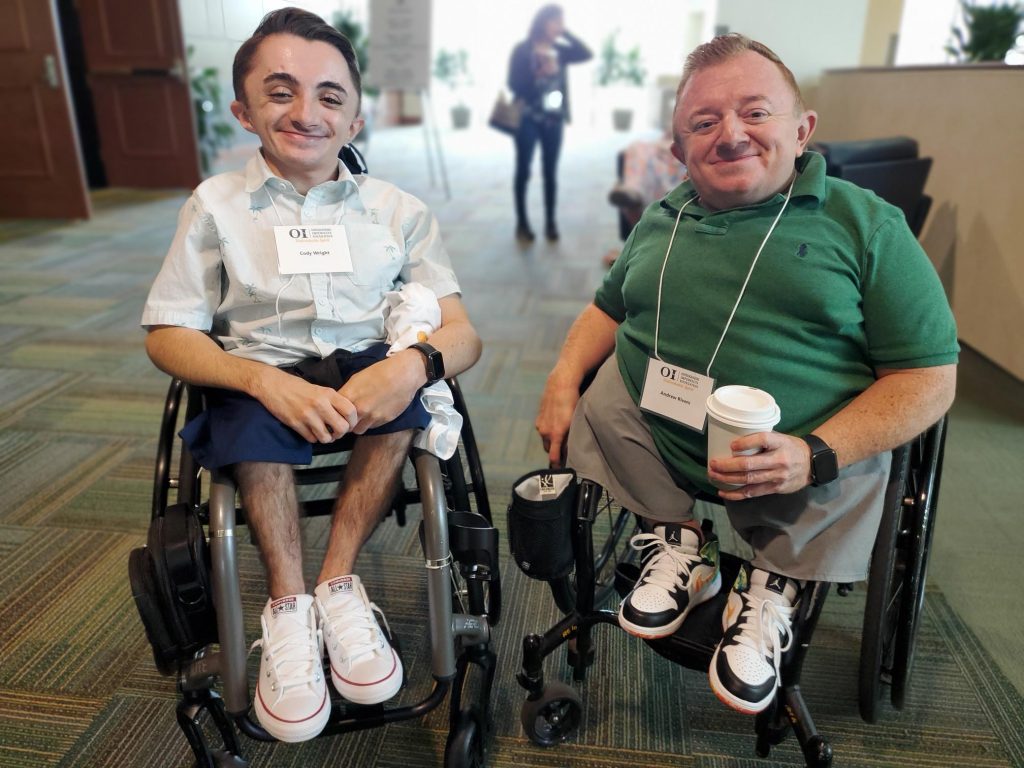
Famous People Who Have or Had Osteogenesis Imperfecta
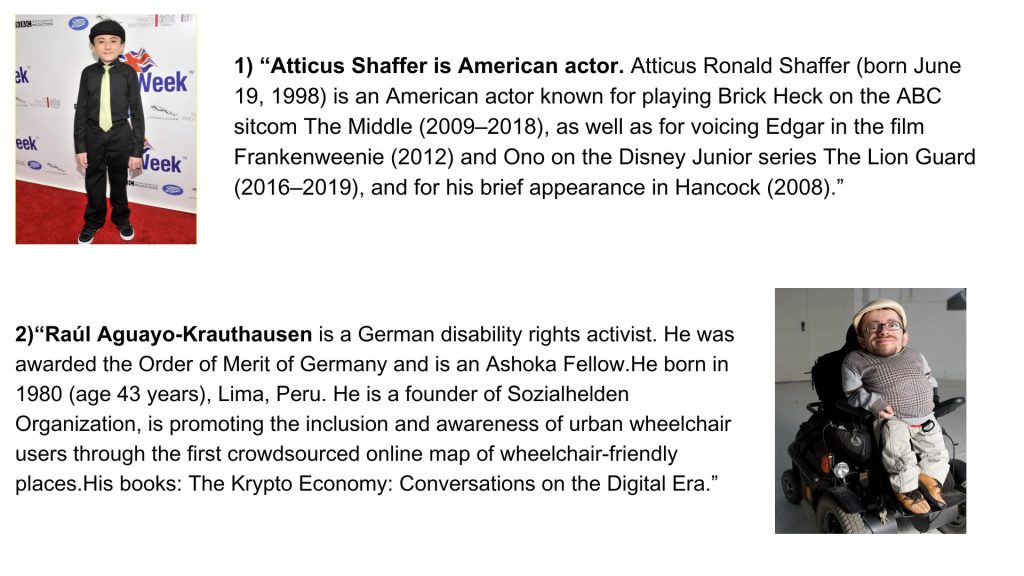
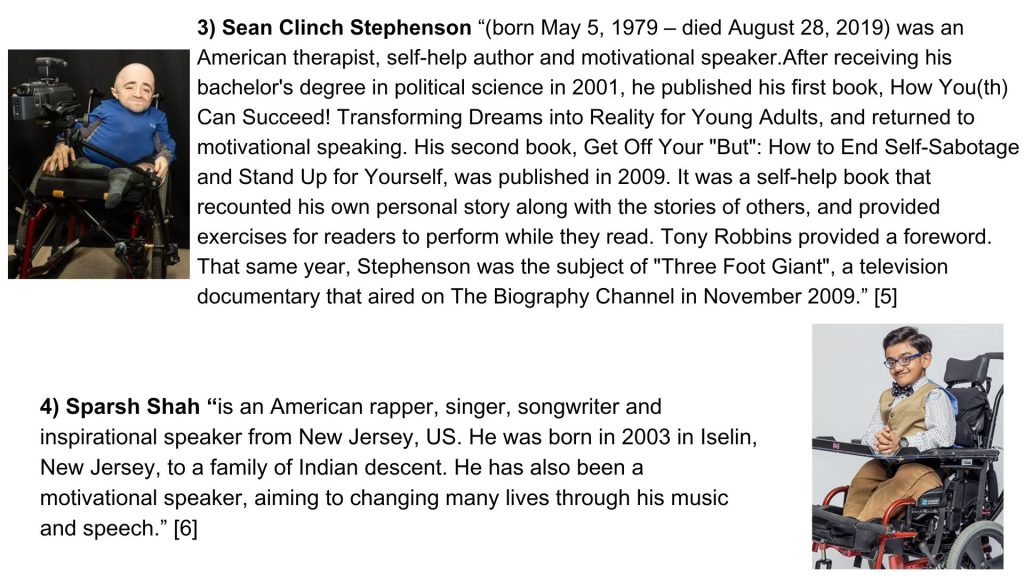
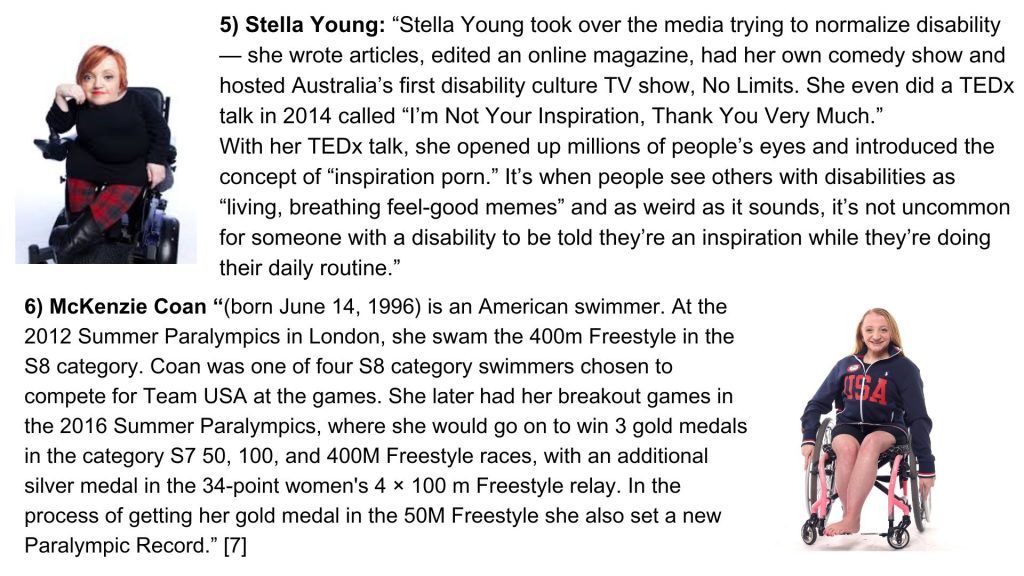

“These individuals contribute to the rich tapestry of human achievement, demonstrating that talent, determination, and resilience can triumph over any obstacle. Their stories continue to inspire and challenge societal perceptions, fostering a more inclusive world for people of all abilities. They have not let anything stand in their way – and neither should us.
Life is never easy when you are living with a disability, but there is always a way to make life easier. It’s important to remember that if you yourself have a disability or know somebody that has it, you’re not alone. We all together can make a difference and support each other. Staying positive and looking for creative solutions to benefit the world helped these inspirational people overcome their circumstances and achieve greatness.” [9 & 10]
Resources
[1] https://www.gosh.nhs.uk/conditions-and-treatments/conditions-we-treat/osteogenesis-imperfecta/
[2] https://my.clevelandclinic.org/health/diseases/15807-osteogenesis-imperfecta-oi
[3] https://www.famousfix.com/list/people-with-osteogenesis-imperfecta
[4] https://en.wikipedia.org/wiki/Ra%C3%BAl_Aguayo-Krauthausen
[5] https://noahstjohn.com/sean-stephenson/
[6] https://en.wikipedia.org/wiki/Sparsh_Shah
[7] https://en.wikipedia.org/wiki/McKenzie_Coan
[8] https://violinscratches.com/
[9] https://365healthservices.com/blog/15-inspiring-stories-of-famous-people-with-disabilities/
[10] https://amobilityshop.co.uk/inspiring-disabled-people-that-changed-the-world/
